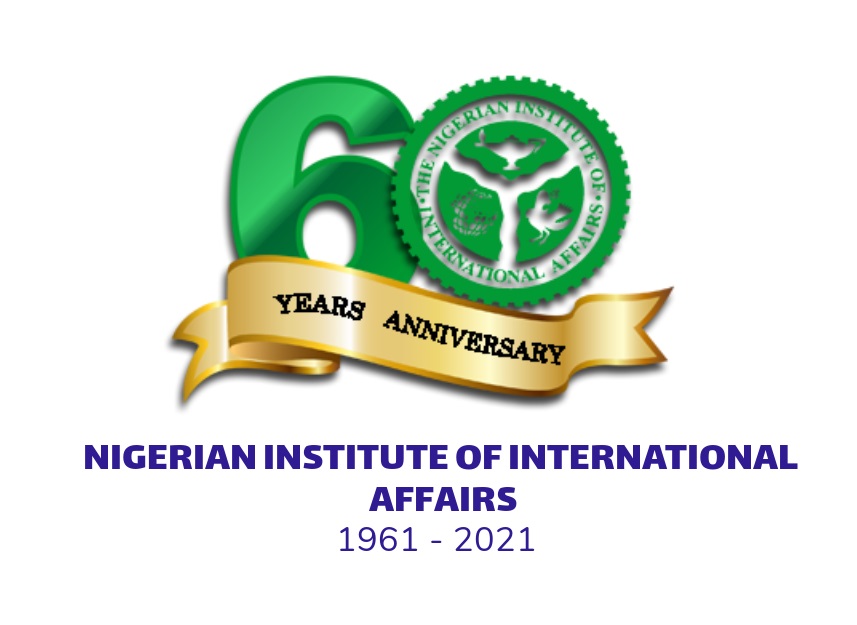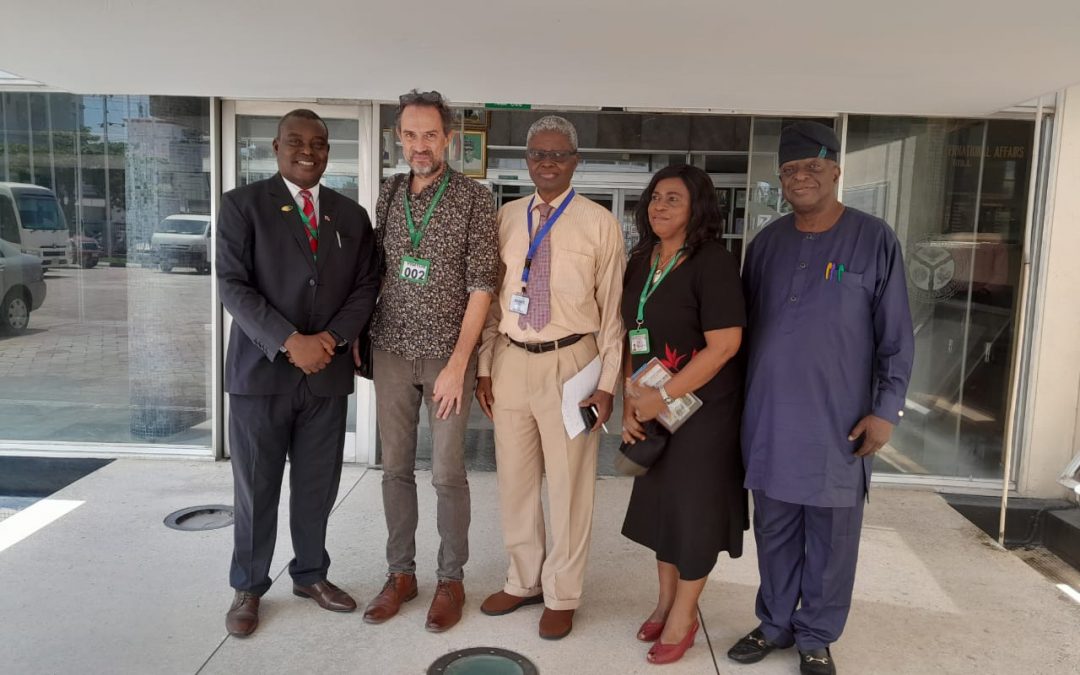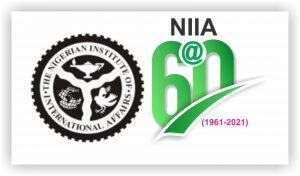Laurent Fourchard is Research Professor at the Centre for International Studies (CERI) at the Urban School of Sciences Po, Paris, France. His research is located at the intersection of comparative urban studies, African history, and African politics. He combines historical and ethnographic methods and privileges a comparative analysis through a description of everyday practices in Nigerian and South African cities. His interests focus on security practices, apparatus of exclusion, colonial and postcolonial governments and negotiation and conflicts in urban public places. At the Nigerian Institute of International Affairs, Victoria Island, Lagos, on Wednesday, 15 March 2023, he made a presentation on his study on the Unwritten Rules of the National Union of Road Transport Workers (now known as Park Management System in Lagos and Oyo States), a study conducted in Lagos and Oyo State.
The National Union of Road Transport Workers (known as Park Management System in Lagos and Oyo States) was until lately, an informally institutionalized organization. It is a central part of the Nigerian transportation system, especially in South West, Nigeria, and particularly in Lagos and Oyo State. It has a well-structured and organized system of operation. Its complex nature and varied perceptions in the workings of socio-economic and political processes prompt questions yet unanswered till present, opening a window of research.
The NURTW is a union formed back in the second Republic between 1978 and 1980, locally popularly known as agbero. The word derives its meaning from two words agba and ero, which mean receivers of commuters. Classical union functions include defending workers rights which is important historically. NURTW municipal bus drivers during the Second Republic went on strike to defend their pensions, salaries and allowances. Their activities were halted when SAP was introduced and operations of drivers became private controlled. Their function was to get commuters into buses at motor parks. They afterwards had a well regulated system with chairmen, unit heads, executive members, who acted and controlled the activities of members at the parks. They began exacting dues from drivers in turn for their services. These operations continued until the emergence of the first Governor of the fourth Republic in Lagos State, Bola Ahmed Tinubu, under whose tenure the operation of the Union was integrated. It thus gradually became a more well-regulated system, less violent, with rules and regulations, a more elaborate bureaucratic process, centrally controlled chain of command from national, state, local government and units. Each cadre thus has its chairman and executives who are prominent street level bureaucrats.
Those known as agberos at motor parks collect dues and remit them to the executives, who in turn pay stipulated amounts to higher authorities in successive chain of hierarchy. The agberos are the field soldiers of the union, responsible for collecting the dues from the drivers for the members of the union. They represent the minority in the organization. It is largely dominated by the male gender. These men are obliged and mandated to report directly to the Branch heads who in turn report to the Exco members. The size of the unit determines the amount demanded, to be paid to the branch. They are only permitted to take their share after they have met the required target for remittance determined by the successive superior chairmen and executive members.
Study shows that the NURTW is a multi-billion naira business organization. With the current operations of the Union, there seem to have been a shift from the original intent of the association. NURTW members are usually no more drivers but some exco members have vehicles, buses that ply the routes that make remittances to them on daily or weekly basis.
The Union regulates the activities at motor parks. It negotiates transport fares. It disciplines erring drivers as well as criminal elements among them. Asides these, the NURTW has, in most cases, been responsible for opening up new alternative routes, regulating traffic and follow up on urbanization. This is also to state that despite the constant fuss and disagreement between the drivers and the union workers, they usually maintain healthy interactions.
The NURTW however has often had a negative perception in the general view of the public. This is associated with the extortion of money and violence against drivers, being networks of political patrons, and constantly in pursuit of the interests of the street bureaucrats rather than being a union primarily concerned with the interest of its workers.
A member interviewed in Obalende said while others who joined the Union alongside him many years back have left due to the less-lucrative nature of the job compared to what obtained in the past, only he among his peers still remains in the employ. He said “I started this work with other people, but they are no longer here because they cannot endure. It is not every day that you will see money in this work, especially during raining season or when Task force did general raiding. When such raiding is going on, driver will just go and park and that will affect us as Union member. Under Tinubu, (Governor Lagos state 1999-2007) when I work from morning till 6 pm, I could remit about 45,000 a day. But now, hardly do I make 15,000 and for me to even make that 15,000 I will have to put more effort”. Bobby, park attendant in Obalande, January 2020.
The agberos however, do not like being addressed as such because it has become derogatory and sometimes avoid been affiliated with the ills that the job is known for. However, there are a few positive functions the union serves. We are workers not touts. “Agbero are those who fight, those who snatch phones, pick pockets. Those who collect by force so we want to separate ourselves from that word”. Parking attendant in Obalende. “Agbero in the public understanding is a tout. Touts or agbero have no orientation, no destination, no office. In Nigeria, we have touts in local governments (LG), they are not fully attached to it, but they are around, they do what the LG does not want to do. But us as union members we are not touts”. A secretary in one unit in Obalende. January 2020.
They give money periodically to Police, DPOs in form patronage so they could maintain convivial relationships with them, have their drivers released when arrested, reduce official charges of offence. “We give 5000 Naira weekly to the Task Force. The Lagos task force take our drivers to Lagos State office of the Task Force which is not to the nearby police station. There, our drivers have to meet the chairman of the Task Force. And instead of paying 70 000 nairas they pay, because of our relationships, 25 000 naira. Drivers who are not part of the union do not have this power to bargain (i.e. to reduce the amount of the fine)”. Interview with one unit secretary in Obalande. January 2020.
In March 2022 it was changed to LS Parks and Management office. Oluomo was branch manager in 2020 and Chairman of Parks and Management in 2022. Nothing changed in Lagos but change of govt in Your State with Auxiliary. NURTW networks turned into the Park and Garage management in several states in the South West. Former NURTW networks turned into PMS staff under the authority of a former NURTW chairman (Musiliu Akinsanya popularly known as MC Oluomo in Lagos, Alhaji Lamidi Mukaila, known as Auxiliary in Ibadan) who are officially under the authority of a permanent secretary of the Department of transport in each state. Loyalty is key. Auxiliary despite falling out with Governor Ajimobi for eight years refused to decamp to the ruling party in the state until Governor Seyi Makinde of PDP was elected in 2019. This brought him to power alongside his loyal followers to head the PMS in Oyo State in a Private-Public-Partnership arrangement.
It is yet to be seen if it is better to have written rules that are not respected than have unwritten rules that are imparting as the case of the NURTW/PMS is today. This study is an expose on the activities of the Union in Lagos and Oyo states. A theoretical frame of the operations of the motor parks in Nigeria at large, across African and some parts of Asian states will need be formulated to understand the political economy of this enterprise.




